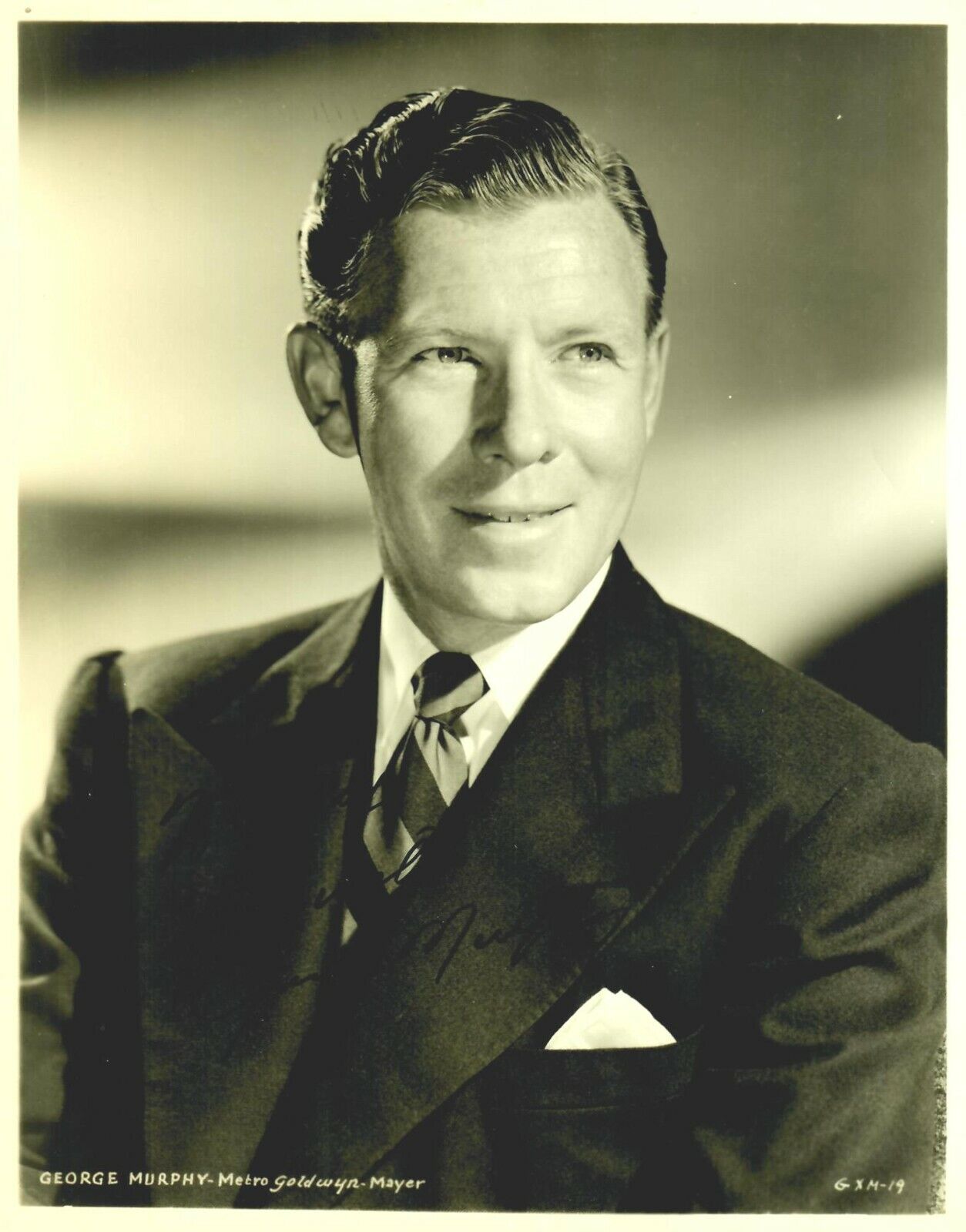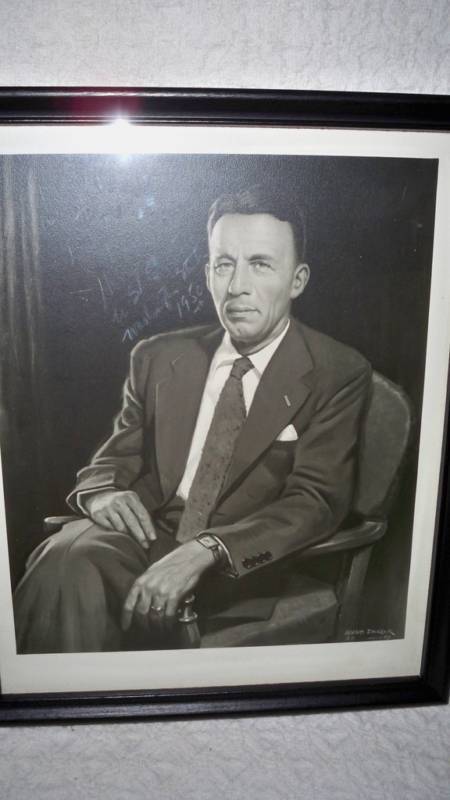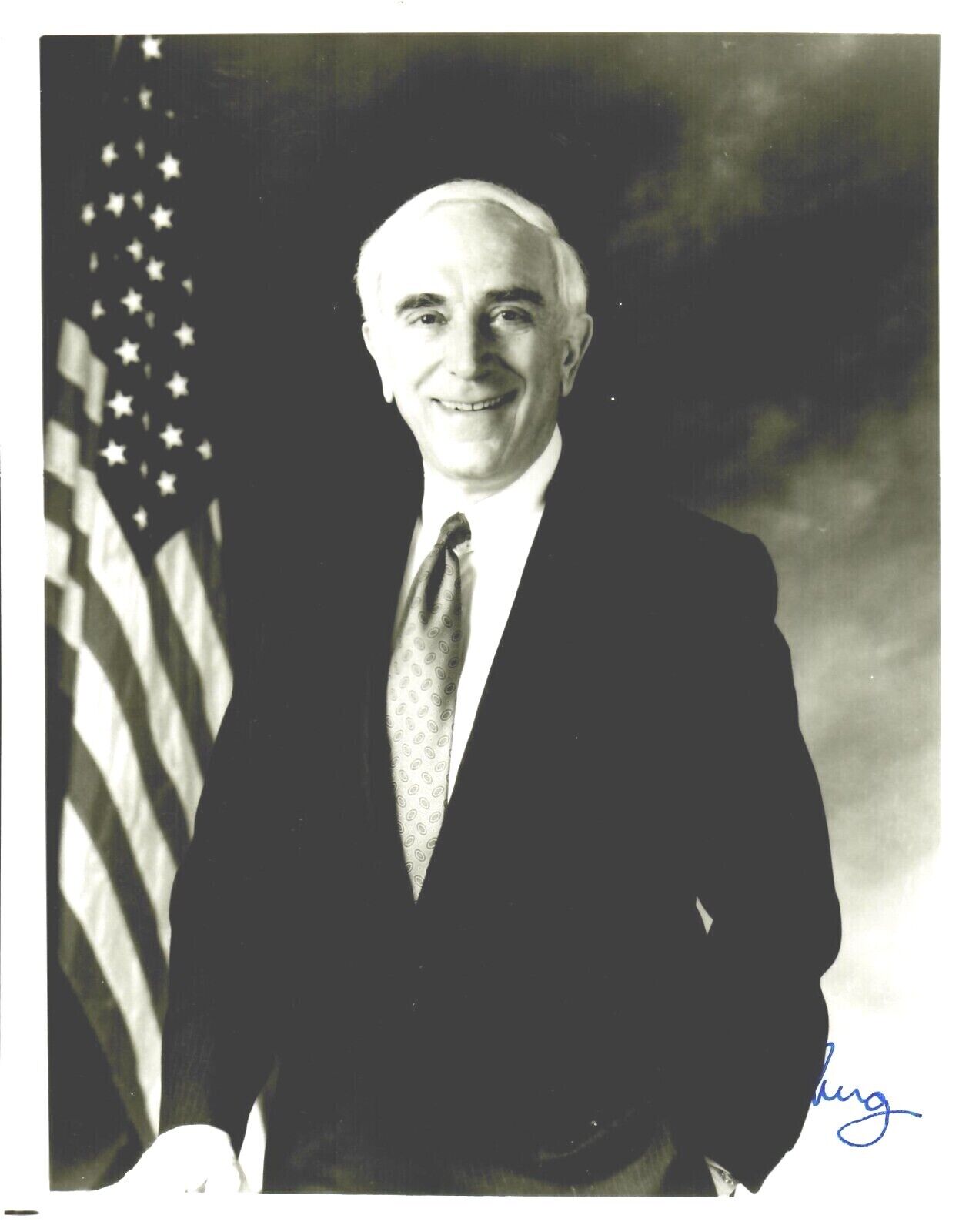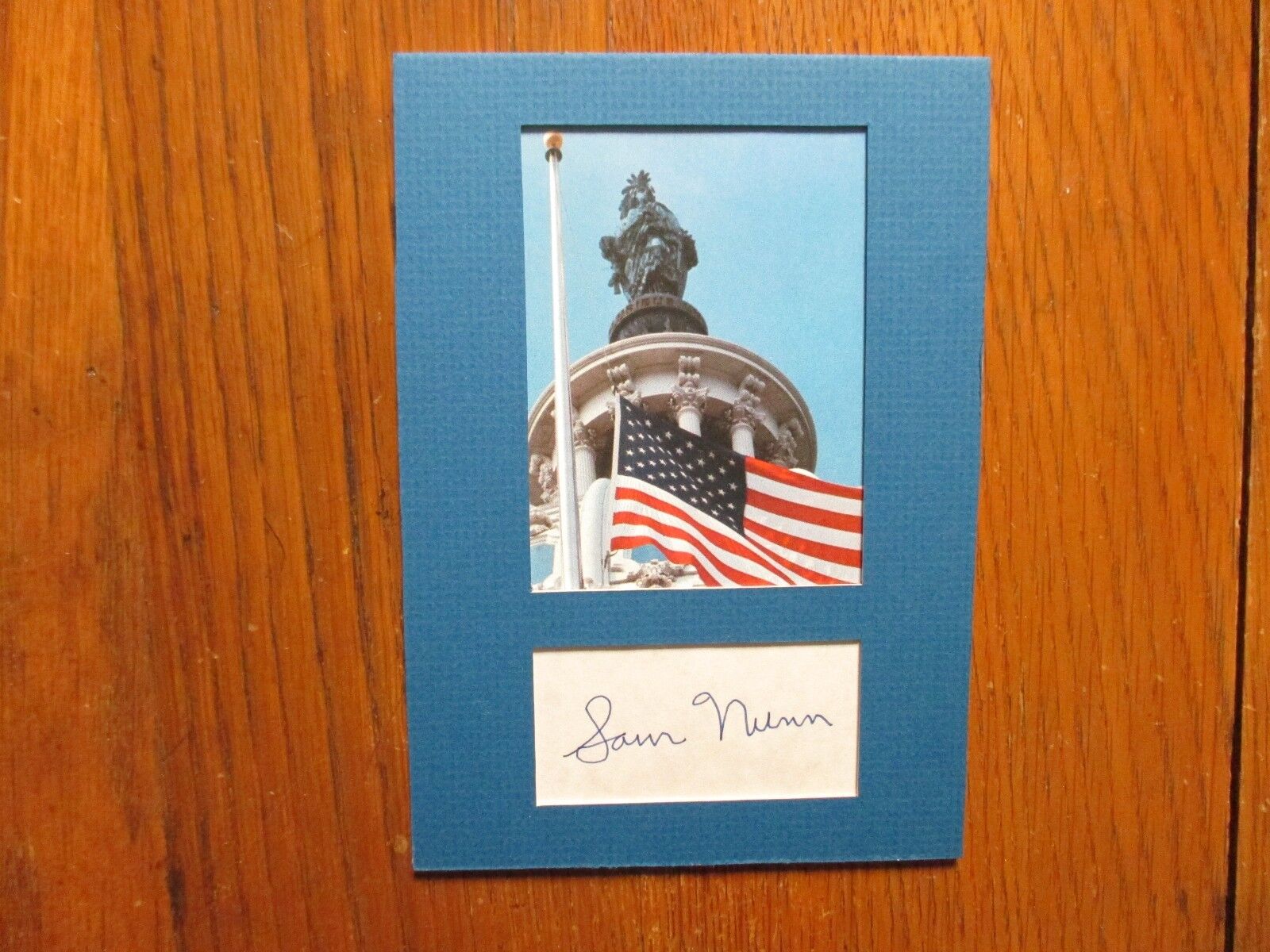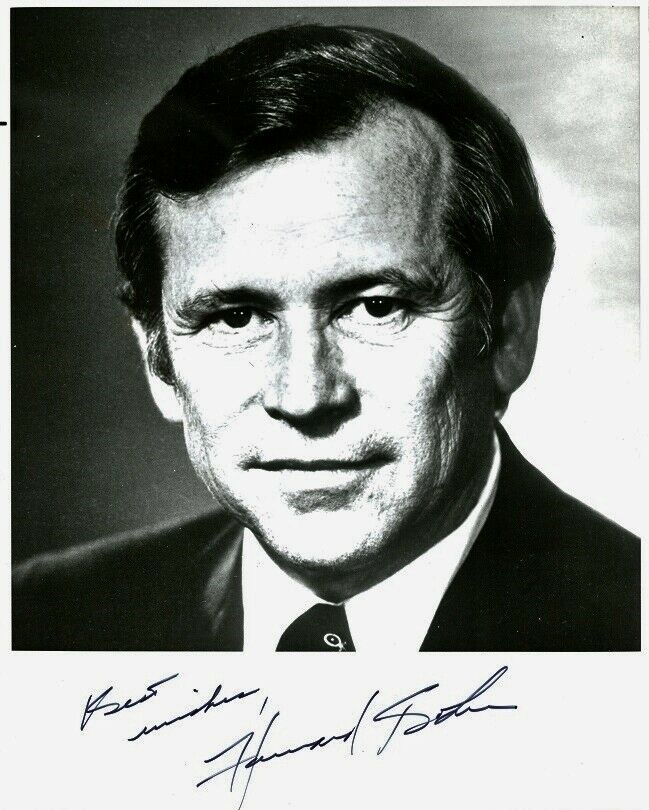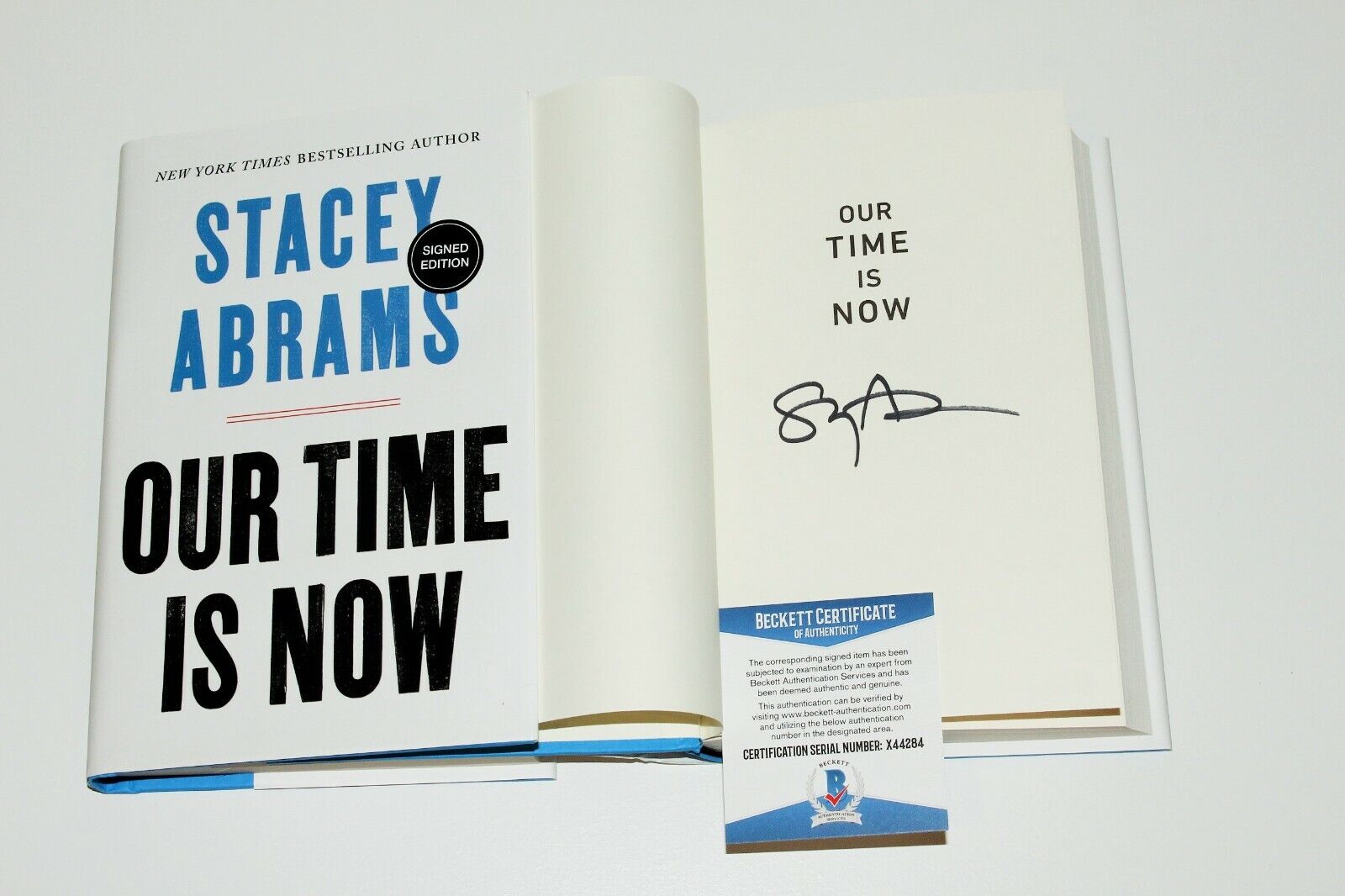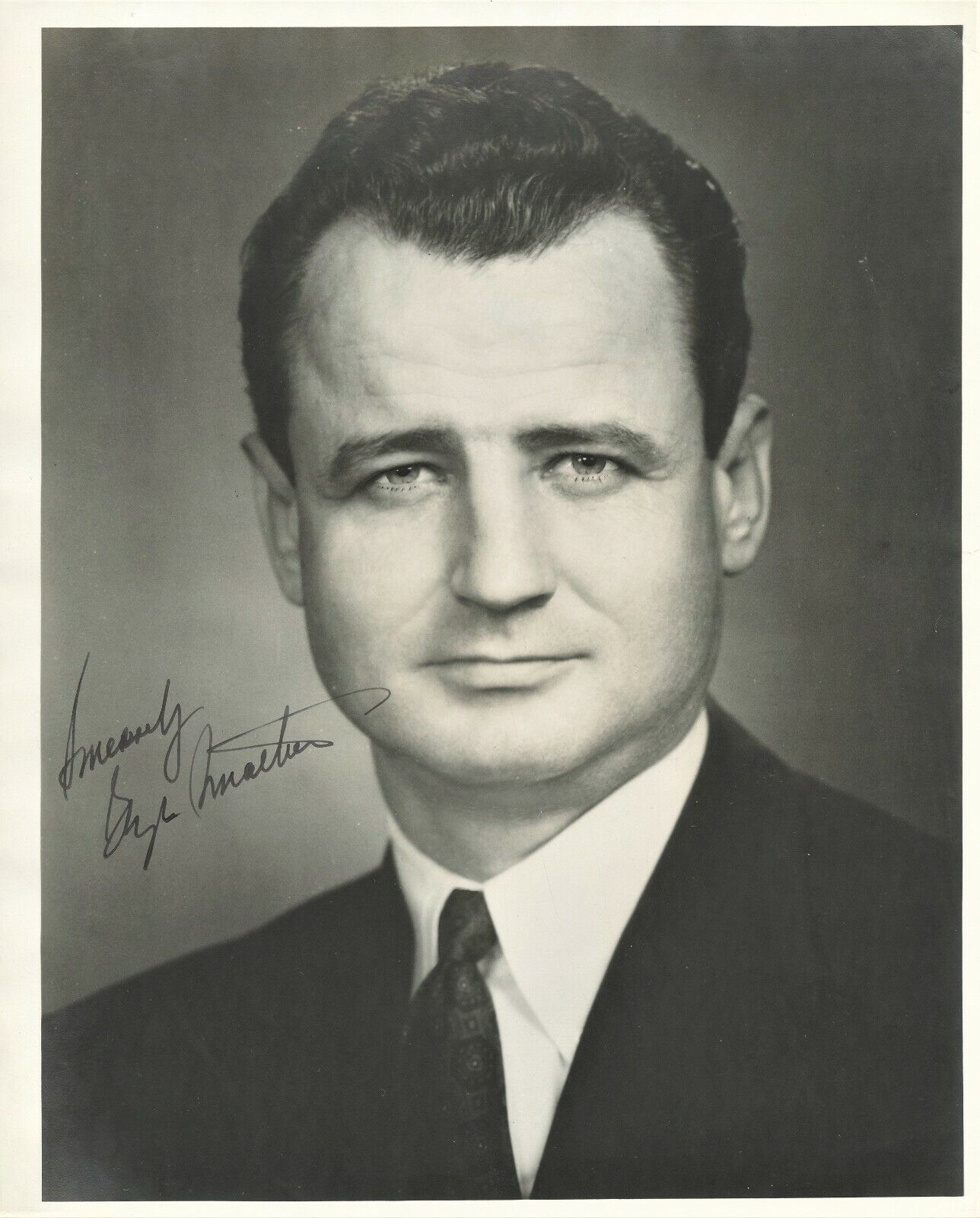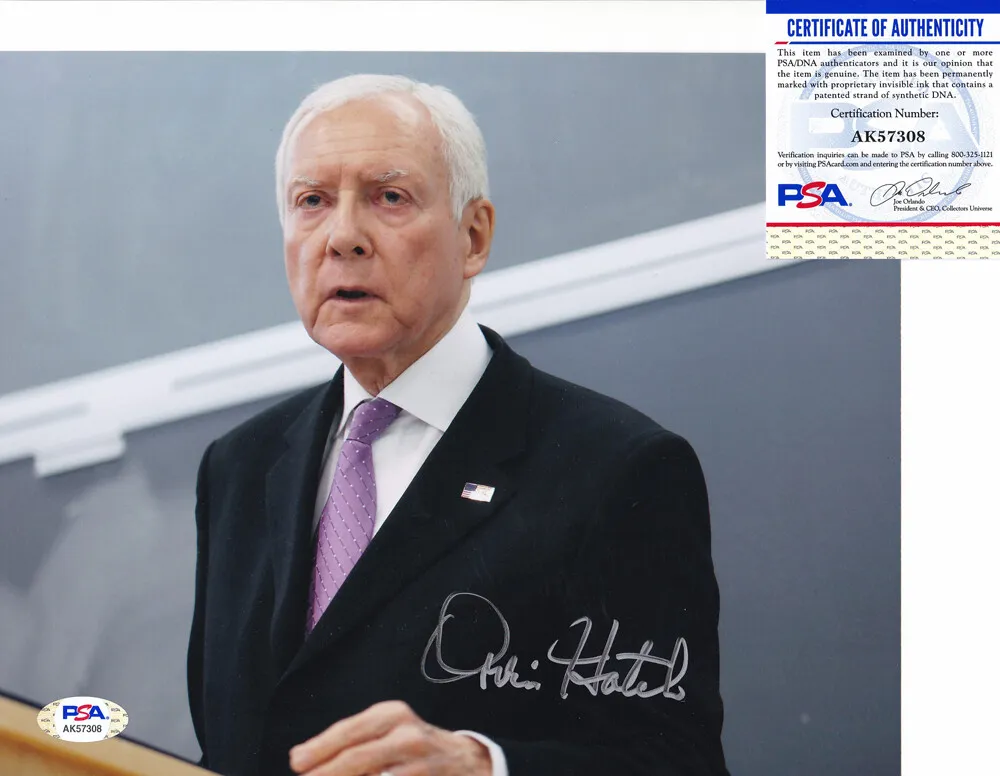-40%
VINTAGE "California Senator" George Murphy Signed 8X10 B&W Photo JG Autographs
$ 52.79
- Description
- Size Guide
Description
Up for auction aVINTAGE "California Senator" George Murphy Signed 8X10 B&W Photo. This is a RARE! Metro Goldwyn Mayer publicity photo.
This item is certified authentic by
JG Autographs
and comes with their Letter of Authenticity.
ES-5758E
George Lloyd Murphy
(July 4, 1902 – May 3, 1992) was an American dancer, actor, and politician. Murphy was a song-and-dance leading man in many big-budget Hollywood musicals from 1930 to 1952. He was the president of the
Screen Actors Guild
from 1944 to 1946, and was awarded an honorary
Oscar
in 1951. Murphy served from 1965 to 1971 as
U.S. Senator
from
California
, the first notable American actor to be elected to statewide office in California, predating
Ronald Reagan
and
Arnold Schwarzenegger
, who each served two terms as governor. He is the only United States Senator represented by a star on the
Hollywood Walk of Fame
. Murphy was born in
New Haven
,
Connecticut
, of Irish Catholic extraction, the son of
Michael Charles "Mike" Murphy
, athletic trainer and coach, and the former Nora Long. He was educated at
Trinity-Pawling School
,
Peddie School
and
Yale University
in his native New Haven. He worked as a
tool maker
for the
Ford Motor Company
, as a miner, a real estate agent, and a night club dancer. In movies, Murphy was known as a song-and-dance man and appeared in many big-budget musicals such as
Broadway Melody of 1938
(1937),
Broadway Melody of 1940
(1940) and
For Me and My Gal
(1942). He made his movie debut shortly after talking pictures had replaced silent movies in 1930, and his career continued until he retired as an actor in 1952, at the age of 50. During World War II, he organized entertainment for American troops. In 1951, he was awarded an honorary
Academy Award
. He was never nominated for an Oscar in any competitive category.He was the president of the
Screen Actors Guild
from 1944 to 1946. He was also a vice president of
Desilu Productions
and of the
Technicolor
Corporation. He was director of entertainment for presidential inaugurations in 1953, 1957 and 1961. Murphy entered politics in 1952 by joining the leadership of the
California Republican Party
, having also directed the entertainment for the
Eisenhower
-
Nixon
inauguration that same year. In 1964, he was elected as a Republican to the Senate, having defeated
Pierre Salinger
, the former presidential press secretary in the
Kennedy
White House
, who had been appointed several months earlier to serve the remainder of the late
Clair Engle
's unexpired term. Murphy served from January 1, 1965, to January 3, 1971. Murphy assumed his seat two days early, when Salinger resigned from the seat to allow Murphy to gain an edge in seniority. Murphy was then appointed by Democratic
Governor
Pat Brown
to serve the remaining two days of Salinger's term. Murphy was in demand for a time to assist other Republican candidates seeking office. In 1966, he hosted a fundraising dinner in
Atlanta, Georgia
, for US Representative
Howard "Bo" Callaway
, the first Republican candidate for
Governor of Georgia
since
Reconstruction
. In the
election
, Callaway outpolled Democrat
Lester Maddox
, but did not get a majority, and the state legislature elected Maddox.
In 1967 and 1968, Murphy was the chairman of the
National Republican Senatorial Committee
. During his Senate term, Murphy developed
throat cancer
, and part of his
larynx
had to be removed. For the rest of his life, he was unable to speak above a whisper. Murphy voted in favor of the
Voting Rights Act of 1965
, as well as the confirmation of
Thurgood Marshall
to the
U.S. Supreme Court
, and the
Civil Rights Act of 1968
. In 1970, Murphy ran for re-election; he was challenged by Democratic US Representative
John V. Tunney
, the son of famed heavyweight
boxing
champion
Gene Tunney
. Murphy's surgery and staunch support for the lingering
Vietnam War
worked against him, as did reports that he had continued to receive a salary from
Technicolor
after taking office. Tunney's successful Senate race in 1970 was reportedly the inspiration for the 1972 Robert Redford film
The Candidate
.
